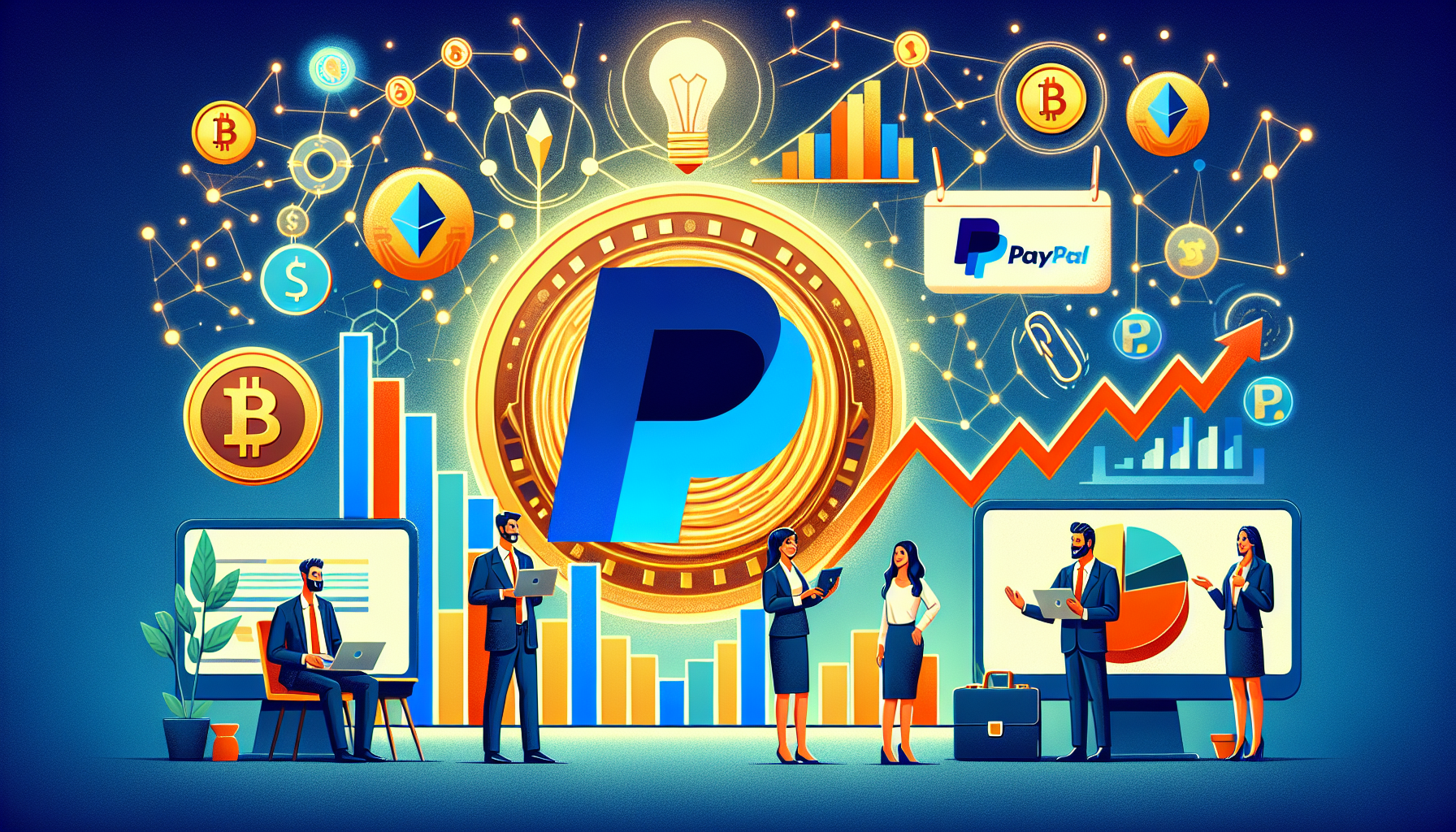PayPal Expands Crypto Services with Solana and Chainlink: A Strategic Move for Mass Adoption
PayPal, the global payments giant, has taken another major step toward mainstream cryptocurrency adoption by integrating Solana (SOL) and Chainlink (LINK) into its platform. This expansion, set to roll out in the coming weeks, will allow U.S. users to buy, sell, and transfer these assets via PayPal and Venmo. With this update, PayPal now supports seven digital currencies, reinforcing its commitment to bridging traditional finance with blockchain-based solutions.
Why Solana and Chainlink Matter for PayPal’s Crypto Strategy
Solana and Chainlink represent two of the most influential projects in the blockchain space. Solana is renowned for its high-speed, low-cost transactions, making it a favorite among decentralized applications (dApps) and DeFi users. Chainlink, on the other hand, is the leading decentralized oracle network, providing real-world data to smart contracts across multiple blockchains.

By adding these assets, PayPal is not just catering to retail investors but also positioning itself as a facilitator for developers and enterprises leveraging blockchain technology. This aligns with PayPal’s long-term vision of integrating digital assets into everyday financial transactions.
PayPal’s Crypto Journey: From Bitcoin to Stablecoins
PayPal’s foray into crypto began in October 2020 when it enabled Bitcoin (BTC), Ethereum (ETH), Litecoin (LTC), and Bitcoin Cash (BCH) trading. The company later introduced crypto checkout functionality in 2021, allowing users to spend digital assets at millions of merchants with instant fiat conversion.
In 2023, PayPal made headlines by launching its own stablecoin, PayPal USD (PYUSD), in partnership with Paxos. This move demonstrated institutional confidence in stablecoins, even as regulatory scrutiny intensified. PYUSD briefly surpassed $1 billion in market capitalization, proving the demand for regulated, enterprise-grade stablecoins.
Market Impact: What This Means for Crypto Adoption
The inclusion of Solana and Chainlink signals PayPal’s recognition of blockchain’s growing utility beyond speculative trading. Here’s how this could influence the market:

- Increased Liquidity: PayPal’s massive user base could drive higher trading volumes for SOL and LINK.
- Regulatory Clarity: PayPal’s compliance-first approach may encourage clearer crypto regulations.
- Enterprise Adoption: Businesses may follow PayPal’s lead in integrating blockchain solutions.
Competitive Landscape: How PayPal Stacks Up Against Rivals
PayPal’s expansion puts it in direct competition with crypto-native platforms like Coinbase and Kraken. However, its advantage lies in seamless fiat-to-crypto conversions and a trusted brand name. Traditional financial institutions, such as JPMorgan and BlackRock, are also entering the space, but PayPal’s early-mover status gives it an edge.
Broader Crypto Trends: Bitcoin’s Decoupling and Institutional Moves
Beyond PayPal’s announcement, the crypto market is witnessing significant shifts:
- Bitcoin as a Geopolitical Hedge: Standard Chartered notes Bitcoin’s decoupling from tech stocks, suggesting it’s being used as an economic hedge.
- ETF Developments: Grayscale’s Solana ETF filing and BlackRock’s BUIDL fund dividends highlight growing institutional interest.
- Regulatory Discussions: The SEC’s meetings with BlackRock and the Crypto Council indicate potential ETF rule changes.
Conclusion: Market Outlook for the Coming Weeks
PayPal’s Solana and Chainlink integration is a bullish signal for crypto adoption, likely encouraging other fintech firms to follow suit. In the short term, we may see:
- A surge in SOL and LINK trading volumes.
- Increased regulatory discussions around stablecoins and ETFs.
- More institutional players entering the market.
For investors, this development underscores the importance of monitoring both retail and institutional adoption trends. As PayPal continues to expand its crypto offerings, the line between traditional finance and decentralized finance will blur further, creating new opportunities and challenges.

